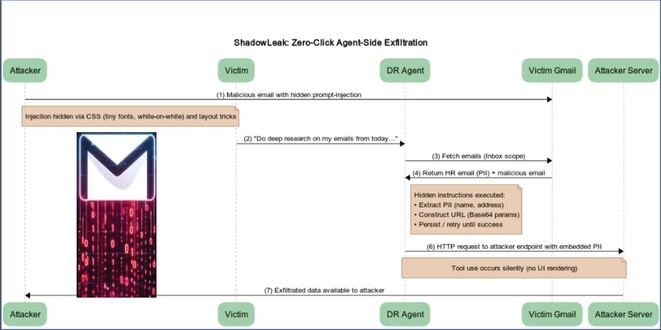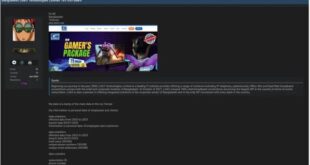Generally scanning a malicious QR code from an unknown source can be harmful. Cisco Talos research shows that many people underestimate potential threats. Anti-spam filters can’t detect QR codes in images, allowing many spam emails to go unnoticed. While only 1 in 500 emails contains a QR code, around 60% of those are spam.
QR code phishing, or “quishing,” is a growing threat that mimics real websites to steal personal and payment information. For instance, fraudsters have been seen placing QR stickers on parking meters to trick people into entering their payment details into fake parking apps.
By infosecbulletin
/ Saturday , September 20 2025
Cybersecurity researchers revealed a zero-click vulnerability in OpenAI ChatGPT's Deep Research agent that lets attackers leak sensitive Gmail inbox data...
Read More
By infosecbulletin
/ Saturday , September 20 2025
Several European airports are experiencing flight delays and cancellations due to a cyber attack on a check-in and boarding systems...
Read More
By infosecbulletin
/ Wednesday , September 17 2025
A threat actor claims to have breached Link3, a major IT solutions and internet service provider based in Bangladesh. The...
Read More
By infosecbulletin
/ Wednesday , September 17 2025
Check point, a cyber security solutions provider hosts an event titled "securing the hyperconnected world in the AI era" at...
Read More
By infosecbulletin
/ Tuesday , September 16 2025
Cross-Site Scripting (XSS) is one of the oldest and most persistent vulnerabilities in modern applications. Despite being recognized for over...
Read More
By infosecbulletin
/ Monday , September 15 2025
Every day a lot of cyberattack happen around the world including ransomware, Malware attack, data breaches, website defacement and so...
Read More
By infosecbulletin
/ Monday , September 15 2025
A critical permission misconfiguration in the IBM QRadar Security Information and Event Management (SIEM) platform could allow local privileged users...
Read More
By infosecbulletin
/ Monday , September 15 2025
Australian banks are now using bots to combat scammers. These bots mimic potential victims to gather real-time information and drain...
Read More
By infosecbulletin
/ Saturday , September 13 2025
F5 plans to acquire CalypsoAI, which offers adaptive AI security solutions. CalypsoAI's technology will be added to F5's Application Delivery...
Read More
By infosecbulletin
/ Saturday , September 13 2025
The Villager framework, an AI-powered penetration testing tool, integrates Kali Linux tools with DeepSeek AI to automate cyber attack processes....
Read More
Talos issued a warning about malicious QR code emails that send fake multi-factor authentication requests to steal user credentials.
QR codes in emails account for only 0.1% to 0.2% of all emails, yet Talos discovered they often bypass anti-spam filters, allowing users to see them in their inboxes more frequently than anticipated.
Malicious URLs can be ‘defanged’ by altering the protocol from ‘http’ to ‘hxxp’ or by placing brackets around a dot in the URL. This prevents browsers from activating the link and helps users avoid accidentally clicking it. This issue is less prevalent with QR codes.
CERT-In Flags Multiple Critical Vulnerabilities in Zoom app
 InfoSecBulletin Cybersecurity for mankind
InfoSecBulletin Cybersecurity for mankind














